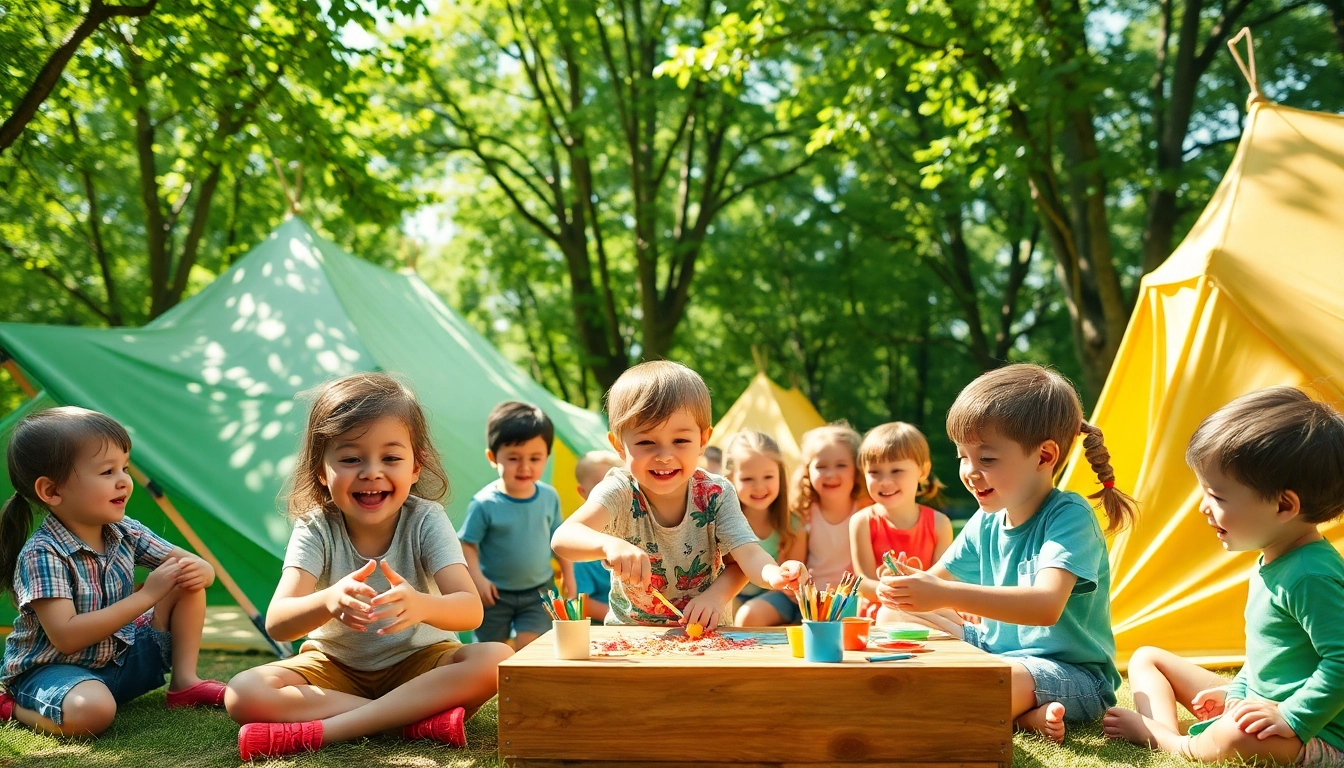Introduction to Holiday Camps
Holiday camps present an exciting opportunity for children and teenagers to engage in fun, enriching activities during their school breaks. These camps not only offer a respite from the daily routine but also serve as platforms for personal growth, learning, and exploration. While many families consider the logistical aspects of enrolling their children in holiday camps, the benefits and experiences gained from these programs often far outweigh the challenges. This guide aims to provide a comprehensive overview of what holiday camps are, the types available, and how to choose the right fit for your child’s needs.
What Are Holiday Camps?
Holiday camps are organized programs, typically held during school breaks, that provide structured environments where children and teenagers can participate in various activities. These camps can last from a few days to several weeks, accommodating different age groups and interests. The focus of holiday camps can vary widely, from sports and arts to nature exploration and academic enrichment.
The Benefits of Attending Holiday Camps
Participation in holiday camps can yield multiple advantages for young participants:
- Social Skills Development: Holiday camps create an atmosphere where children can meet peers, which is essential for developing social skills.
- Confidence and Independence: Experiencing new activities and challenges helps children gain confidence in their abilities and fosters independence.
- Physical Activity: Many camps emphasize physical activities, promoting a healthier lifestyle.
- Exposure to New Interests: Camps often introduce children to new hobbies or sports that they may not encounter in a typical school setting.
- Learning Opportunities: Some camps focus on academic subjects, providing a fun way to reinforce what children learn in school.
Types of Holiday Camps Available
Holiday camps can be categorized based on various criteria, including focus areas, format, and duration:
- Sports Camps: These camps typically focus on physical activities, providing children with the chance to practice specific sports, improve their skills, and compete.
- Arts and Crafts Camps: Camps that center on creative activities such as painting, music, theater, and dance help children express themselves artistically.
- Adventure and Outdoor Camps: These programs often involve activities like hiking, camping, and survival skills, fostering teamwork and resilience.
- STEM Camps: Focusing on science, technology, engineering, and mathematics, these camps are designed for children interested in exploring these fields in a hands-on way.
- Academic Enrichment Camps: Some camps target specific subjects, providing additional learning opportunities during the school break.
How to Choose the Right Holiday Camp
Selecting the right holiday camp for your child can feel overwhelming due to the plethora of options available. However, narrowing down the choices can be manageable by considering the following factors:
Age Appropriateness and Interests
It’s crucial to consider both the age of your child and their specific interests when choosing a camp. Each camp has its target age group, typically ranging from preschool to late teens. Additionally, aligning the camp’s focus with your child’s passions—whether it’s sports, arts, or science—will result in a more engaging and enjoyable experience. Speak with your child about their interests to help guide your decision.
Location and Accessibility Considerations
The location of the holiday camp is another significant factor. Consider how far you are willing to travel and if the camp offers transportation services. Local camps might provide the added convenience of being closer to home, while camps further away may offer unique experiences not available locally. Also, consider accessibility in terms of drop-off and pick-up times, which can affect your family’s daily routine.
Camp Facilities and Safety Measures
Researching camp facilities and safety measures is vital in the selection process. Ensure that the camp adheres to local safety regulations and has trained staff to supervise and assist campers. Visiting the camp beforehand can also give you insight into the environment, including the quality of amenities and available space for activities. Consider inquiring about their emergency procedures, health policies, and child-to-staff ratios.
Activities to Expect at Holiday Camps
Knowing what activities to expect can greatly influence your child’s excitement about attending a camp. Here’s a brief overview of common activities in various holiday camps:
Outdoor Adventures and Sports
Many holiday camps emphasize outdoor activities and sports. Expect a mix of team sports, individual challenges, and adventure activities like rock climbing, kayaking, and zip-lining. These activities not only promote physical fitness but also help campers develop essential skills such as teamwork, communication, and strategy.
Arts, Crafts, and Creative Programs
Camps focused on arts and crafts provide a creative outlet for campers. Activities may include painting, sculpting, musical performances, drama, and dance. These camps encourage participants to explore their creativity and express themselves, often culminating in exhibitions or performances that showcase their work.
Team-Building Exercises and Social Activities
In addition to structured activities, many camps facilitate team-building exercises to foster camaraderie among campers. These could involve trust falls, scavenger hunts, or group problem-solving tasks. Such activities not only enhance social skills but also promote a sense of belonging and community.
Preparing for Holiday Camps
Preparation is key to ensuring a smooth transition into holiday camp life. Here are some steps to guide you and your child:
Packing Essentials for Campers
Compiling a packing list tailored to the specific camp is crucial. Essentials might include comfortable clothing, swim gear, sunscreen, sturdy footwear, and personal hygiene items. Many camps provide packing lists, so be sure to review those for guidance. Involving your child in the packing process can also help them feel more prepared and excited.
Setting Goals for Camp Experience
Discussing and setting goals for what your child hopes to achieve during their time at camp can enhance their experience. Goals could range from making new friends to trying new activities. Encouraging your child to articulate their goals can provide them with focus and motivation throughout their camp journey.
Communicating with Camp Leaders
Open lines of communication with camp leaders can provide reassurance for both you and your child. Be proactive in asking questions about the camp’s daily schedule, counselor qualifications, and how they support campers. Understanding these details can help alleviate any concerns and ensure a positive experience.
Making the Most of Holiday Camps
To maximize the holiday camp experience, consider these strategies:
Fostering Friendships and Community
Encourage your child to approach camp as an opportunity for socializing and building friendships. Engaging in group activities, sharing cabins, and collaborating on projects can naturally foster connections. Remind them that everyone is eager to make friends, and a friendly approach can go a long way.
Experiencing Personal Growth and Independence
Holiday camps provide an ideal environment for children to step out of their comfort zones. Encourage your child to embrace new experiences, face challenges, and learn new skills. These moments can contribute significantly to their sense of independence, personal growth, and resilience.
Sharing Your Camp Journey with Family and Friends
After returning from camp, encourage your child to share their experiences with family and friends. Discussing their activities, new friends, and memorable moments can reinforce their memories and lessons learned. Consider setting aside time for them to share highlights during family meals, which can also help with processing their camp experience.
In conclusion, the world of holiday camps is rich with opportunities for children and teenagers to grow, learn, and have fun. By carefully selecting a camp that aligns with your child’s interests and needs, preparing adequately, and encouraging an active and engaged mindset, the experience can be both memorable and transformative.



